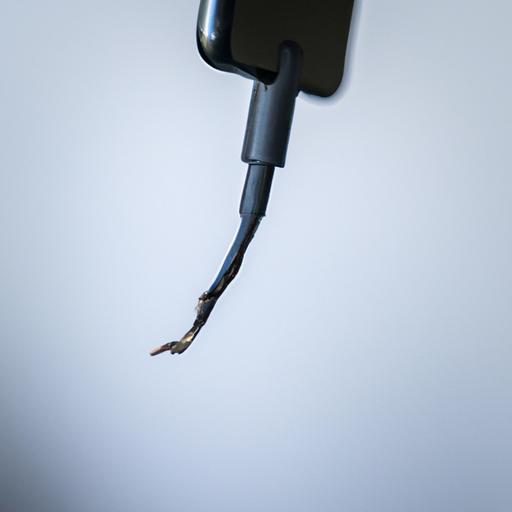What is My Phone Not Charging: Troubleshooting and Prevention Guide
Introduction
Have you ever experienced the frustration of plugging in your phone, only to find out that it’s not charging? It’s a common problem that can be caused by various factors, and it’s important to address it promptly to ensure your device stays powered up when you need it the most. In this article, we will explore the common reasons why your phone may not be charging, provide troubleshooting steps to try, answer frequently asked questions, and offer tips to prevent charging problems in the future.

Common Reasons Why a Phone May Not be Charging
Insufficient Power Source or Faulty Charger
One of the most common culprits behind a phone not charging is an insufficient power source or a faulty charger. Ensure that you are using a reliable power outlet and a charger that is compatible with your device. Cheap or counterfeit chargers may not provide the necessary power output, leading to charging issues.
Damaged Charging Cable or Port
A damaged charging cable or port can prevent your phone from charging properly. Regular wear and tear or accidental damage can cause frayed cables or bent pins in the charging port. Inspect your charging cable for any visible damage and try using a different cable to rule out this possibility. Additionally, check your phone’s charging port for any debris or lint that may be obstructing the connection.
Software Issues or Glitches
Sometimes, software issues or glitches can interfere with the charging process. Restarting your phone can help resolve minor software glitches that may be affecting charging. Additionally, updating or reinstalling the software can address any underlying bugs that may be causing the problem.
Battery Problems or Degradation
Over time, phone batteries can degrade, leading to charging problems. If your phone is not holding a charge for as long as it used to or is draining quickly, it could be a sign of battery degradation. Consider getting the battery replaced by a professional if this is the case.
Overheating Issues Affecting Charging Capabilities
Excessive heat can impact the charging capabilities of your phone. If your device becomes too hot while charging, it may automatically reduce or halt the charging process to prevent further damage. Ensure that your phone is not exposed to high temperatures or direct sunlight while charging.
Other Potential Hardware Problems
In some cases, other hardware problems may be causing your phone to not charge. These can include issues with the power IC, circuit board, or other internal components. If you have ruled out all other possibilities and your phone still doesn’t charge, it’s advisable to seek professional assistance for a thorough diagnosis and repair.
Troubleshooting Steps to Try When Your Phone is Not Charging
Check Power Source and Charger
Start by checking the power source and charger. Ensure that the power outlet is working correctly and try using a different outlet if needed. If you suspect the charger is faulty, try using another compatible charger to see if it resolves the issue.
Inspect Charging Cable and Port
Carefully examine the charging cable for any visible damage. If you notice frayed wires or a bent connector, it’s time to replace the cable. Additionally, check the charging port on your phone for any debris, lint, or dirt that may be obstructing the connection. Use a soft brush or compressed air to clean the port gently.
Restart or Reset Your Phone
Sometimes, a simple restart can fix charging issues caused by minor software glitches. Turn off your phone, wait a few seconds, and then turn it back on. If the problem persists, you may consider performing a factory reset as a last resort. However, remember to backup your data before proceeding with a reset, as it will erase all the data on your device.
Update or Reinstall Software
Keeping your phone’s software up to date is crucial for smooth operation, including charging. Check for any available software updates and install them if necessary. If you suspect that a specific app is causing the charging problem, try uninstalling and reinstalling it to see if it resolves the issue.
Monitor Battery Health and Performance
To ensure your phone’s battery is in good condition, monitor its health and performance regularly. Some devices provide built-in battery health tools that can give you insights into the battery’s capacity and performance. If you notice a significant decline in battery health, consider getting it replaced by a professional.
Seek Professional Assistance if Necessary
If you have exhausted all troubleshooting options and your phone still refuses to charge, it’s time to seek professional assistance. Contact your phone manufacturer’s customer support or visit an authorized service center to have your device examined by trained technicians who can diagnose and fix any underlying hardware issues.
Frequently Asked Questions (FAQs)
Q: What should I do if my phone is not charging at all?
A: Start by checking the power source and charger, inspect the charging cable and port for any damage or debris, and try restarting your phone. If the problem persists, seek professional assistance.
Q: Why does my phone charge slowly?
A: Slow charging can be caused by various factors, including using a low-power charger or cable, battery degradation, or software issues. Try using a high-power charger and cable, monitor battery health, and update your software to address slow charging.
Q: Can using a different charger damage my phone?
A: Using a charger that is not compatible with your phone can potentially damage the battery or other internal components. Stick to chargers recommended by the manufacturer to ensure safe and optimal charging.
Q: How do I know if my charging port is damaged?
A: Look for visible signs of damage, such as bent pins or debris in the charging port. If your phone doesn’t charge consistently and other troubleshooting steps haven’t resolved the issue, it’s advisable to consult a professional for further inspection.
Q: Is it normal for a phone’s battery to degrade over time?
A: Yes, it is normal for phone batteries to degrade over time due to regular usage and charging cycles. Battery degradation can lead to reduced charging capacity and shorter battery life.
Q: Are there any software apps that can help fix charging issues?
A: There are various battery optimization apps available that claim to fix charging issues. However, it’s important to exercise caution and choose reputable apps from trusted sources. It’s advisable to rely on manufacturer-recommended software updates for resolving charging problems.
Tips to Prevent Charging Problems in the Future
Use Certified Chargers and Cables
To ensure safe and efficient charging, always use certified chargers and cables recommended by your phone manufacturer. Cheap or counterfeit accessories may not provide the required power output and can potentially damage your device.
Avoid Overcharging or Excessive Heat Exposure
Overcharging your phone can strain the battery and lead to degradation over time. Avoid leaving your device plugged in for extended periods once it reaches full charge. Additionally, excessive heat exposure can harm both the battery and the charging circuitry, so avoid exposing your phone to high temperatures during charging.
Regularly Clean Charging Ports
Lint, debris, and dirt can accumulate in the charging port over time, obstructing the connection and affecting charging performance. Regularly clean the charging port using a soft brush or compressed air to remove any debris, ensuring a secure and uninterrupted charging experience.
Keep Software Up to Date
Regularly updating your phone’s software is crucial for optimized performance, including charging. Manufacturers often release software updates that address bugs, improve battery efficiency, and enhance overall functionality. Stay up to date with the latest software releases to minimize charging problems.
Monitor Battery Health and Performance
Keep an eye on your phone’s battery health and performance through built-in tools or reliable third-party apps. By monitoring battery capacity, charging cycles, and overall performance, you can detect any early signs of degradation and take appropriate measures, such as replacing the battery if necessary.
Conclusion
When your phone is not charging, it can disrupt your daily routine and cause frustration. By understanding the common reasons behind charging issues and following the troubleshooting steps outlined in this article, you can often resolve the problem on your own. Remember to prioritize safety, use certified chargers and cables, and seek professional assistance if needed. By implementing the preventive tips discussed, you can minimize charging problems in the future and ensure that your phone remains powered up whenever you need it.
